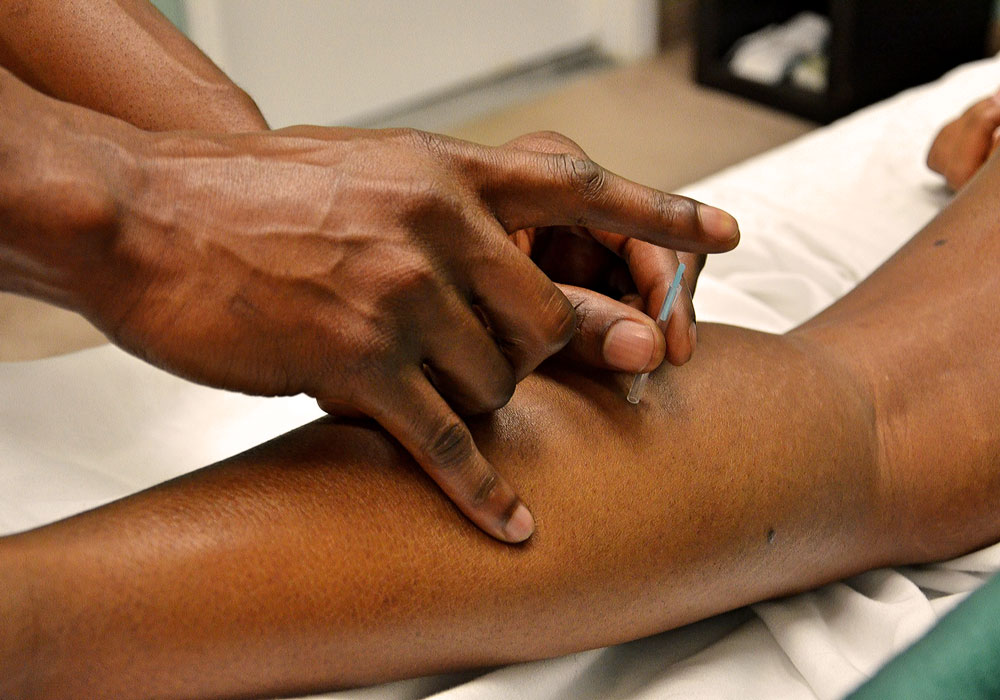By Jun J. Mao, MD, MSCE, and Deborah W. Bruner, RN, PhD, FAAN
Cancer-related pain, whether from the disease or its treatments, is a distressing symptom that persists through survivorship. Pain diminishes patients’ quality of life and negatively affects their cancer-related outcomes.
Integrative medicine, a patient-centered, evidence-informed methodology that combines standard treatments with complementary therapies such as acupuncture and massage, is one approach for controlling cancer symptoms such as pain. Surveys show that nearly 40% of patients with cancer use integrative modalities annually.
Integrative Care Guideline Recommendations
In September 2022, the Society for Integrative Oncology (SIO) and the American Society for Clinical Oncology (ASCO) jointly published an evidence-informed guideline for integrative medical strategies to control cancer-related pain that builds on ASCO’s 2016 guideline, Management of Chronic Pain in Survivors of Adult Cancers.
An interprofessional group of expert panel members reviewed data from randomized controlled trials, systematic reviews, and meta-analyses published from 1990–2021 that involved both adult and pediatric patients with cancer. They also consulted the clinical experience and responses from healthcare professionals in fields including medical oncology, integrative oncology, surgical oncology, family medicine, and nursing; patient advocacy groups; and social sciences representatives.
The guideline panel recommended that healthcare providers:
- Offer acupuncture to patients with breast cancer who experience aromatase inhibitor (AI)-induced arthralgia. Data from a randomized controlled trial (N = 226) showed that true acupuncture was more efficacious than sham acupuncture and waitlist control, affecting statistically significant reductions in joint pain at six weeks.
- Also recommend acupuncture to patients with general or musculoskeletal pain. Data from the largest randomized controlled trial to date of patients with cancer (N = 360) who have moderate to severe chronic musculoskeletal pain showed that 10 weeks of acupuncture treatment led to sustained benefits at six months following randomization, with few side effects.
- Offer massage therapy to patients with pain, particularly those receiving palliative or hospice care. Massage produced clinically significant benefits against moderate to severe pain in a randomized controlled trial of patients with advanced cancer (N = 380). However, the guideline authors cautioned that the therapy’s long-term effects are not known.
- Recommend hypnosis to patients receiving painful procedures. In randomized controlled trials, patients undergoing large-core breast biopsies or tumor embolization or radiofrequency ablation reported significant reductions in pain with hypnosis compared to control groups.
The recommendations are based on intermediate-level evidence and benefits outweighing risks. The panel said that current evidence was insufficient to make recommendations for pediatric patients, other complementary therapies, and natural products, warranting the need for more rigorous research.
The panel also highlighted the critical need to educate oncology professionals with the latest evidence surrounding integrative medicine to improve patient outcomes, and of addressing barriers to equitable healthcare.
What Oncology Nurses Need to Know
Cancer pain control is a challenge for patients and oncology nurses. The SIO-ASCO guideline provides an evidence base for incorporating selected complementary therapies into pain management to improve patients’ functional well-being and quality of life. The recommendations may complement the approaches ONS recommends in its symptom intervention resources for acute, breakthrough, chronic, and refractory/retractable pain.
Advanced practice and oncology nurses are on the front lines of pain and symptom management and can evaluate patients’ symptom needs and treatment preferences and guide them through incorporating appropriate treatments into their care. Given the safety profile, availability, and growing evidence of acupuncture and massage for cancer-related symptoms, nurses should consider incorporating them into clinical pain management.






